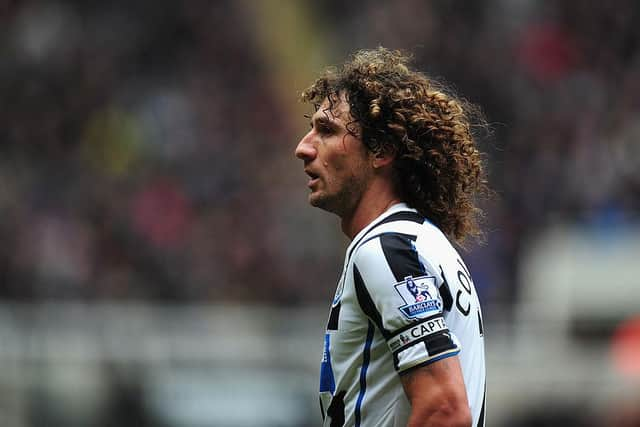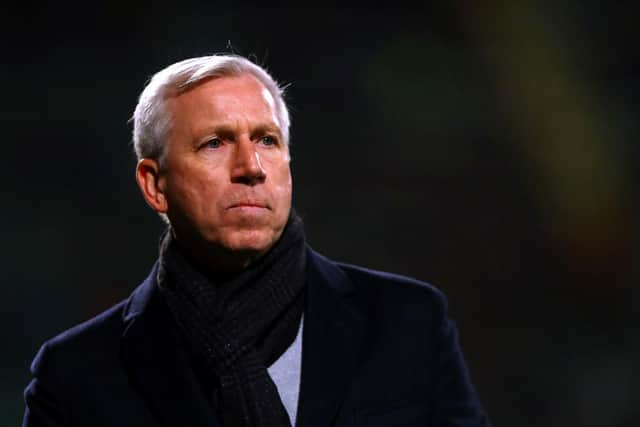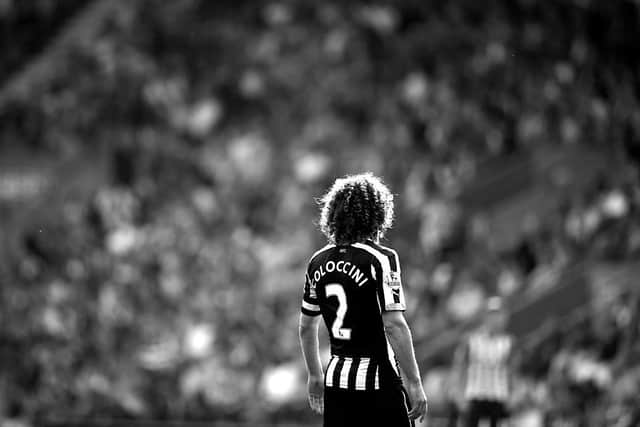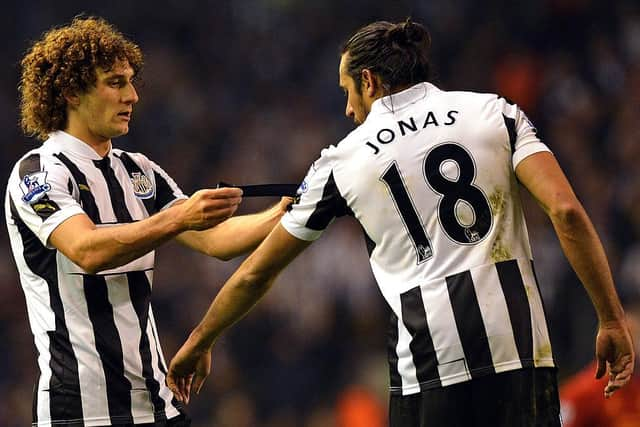The inside story of Fabricio Coloccini’s captaincy at Newcastle United – and the 'disapproving looks' which kept players in line
and live on Freeview channel 276
Coloccini – who ended his playing career in his native Argentina – captained Newcastle United for five of his eight seasons at St James’s Park.
The captaincy has again been in the spotlight in recent weeks – former skipper Alan Shearer boldly named new signing Kieran Trippier as a “future” captain last month – and the importance of the role can’t be understated.
Advertisement
Hide AdAdvertisement
Hide AdAnd Coloccini will always be synonymous with United, having led the club into Europe after taking the armband.
The defender, signed from Deportivo La Coruna for £10million in 2008, was named captain following Kevin Nolan’s controversial departure in the summer of 2011.
And Coloccini – who had taken a season to adapt to the demands of English football following his move to Tyneside – wasn’t necessarily the obvious choice to lead the team.
Yohan Cabaye and Cheick Tiote were strong candidates to take the armband, but then-manager Alan Pardew had seen something in the quietly-spoken former Argentina international following his arrival at the club the previous year.
Advertisement
Hide AdAdvertisement
Hide Ad“I was always impressed with his personality,” said Pardew, now technical director of Bulgarian club CSKA Sofia. “He had a good personality. He was influential around the other players.


“That grew as I was there, but it was just sort of taking place as I arrived. He was becoming an important main man to the team in terms of leadership, and, you know, his quality of performances really improved while I was there, probably highlighted in that season when we finished fifth.
“He was probably the best player on the pitch on a number of occasions. Him, Cheick, Cabaye – they were a big part of that team in terms of technical quality and leadership
“He had a great relationship with Jonas (Gutierrez), and I think that helped him in his love of the North East that he had someone very much who reminded him of home and they could talk about South American football, things in common. It might have been more difficult for him if he hadn’t been there.”
Advertisement
Hide AdAdvertisement
Hide AdNolan – who went on to captain West Ham United after leaving Newcastle – had pulled the club’s dressing room together in the wake of its relegation in 2009. Vocal on and off the pitch, the midfielder was perfect as captain.


Coloccini, succeeded by Jamaal Lascelles as captain following his departure in 2016, was different. He also led by example, but a “disapproving look” from him was as powerful as a dressing down from Nolan, according to Pardew.
“Kevin was a different type of leader,” said Pardew. “Kevin was very much organising and policing the group. He would actively police the group, whereas Colo was not like that.
“He would do it in a much quieter way, with a look, a disapproving look if someone was late for training. It was more his actions on the training ground that led him to be a leader more than vocally like Kevin would be.
Advertisement
Hide AdAdvertisement
Hide Ad“Kevin would give someone a dressing down. Colo never really did that. He was always unaccepting of people’s behaviour in a different way. So it was a different type of captain.


“I really enjoyed Kevin’s captaincy. I learnt a little bit from Kevin in the way he did it, but I couldn’t replace Kevin with another Kevin, it had to be someone different, otherwise it would have been difficult. I think, from that perspective, it worked quite smoothly.”
Newcastle almost qualified for the Champions League in Coloccini’s first campaign as captain.
Everything that could go wrong seemingly did go wrong the summer he was appointed skipper, but so much went right on the pitch that season.
Advertisement
Hide AdAdvertisement
Hide AdUnited had the brilliance of Hatem Ben Arfa and Hatem Ben Arfa in the final third of the pitch, Cabaye’s genius in midfield – and Coloccini’s calmness at the back alongside Steven Taylor.
“It was definitely his best season at Newcastle,” said Pardew. “He had great confidence in his ability that year. He played that left-side centre-half, which isn’t easy, particularly when you’re a right-footer, and he marshalled the back line.
“He found his confidence, I think he really found himself as a Premier League player that season. His performances matched that.”


United fans saw the performances on the pitch from Coloccini, close to countryman Jonas Gutierrez, but they didn’t see the work he put in behind the scenes. Coloccini and Gutierrez were always the first in – and last out.
Advertisement
Hide AdAdvertisement
Hide Ad“You’d know that at 3pm or 4pm, him and Jonas would be the last two there singing and having their South American music when everyone had gone,” said Pardew. “I could hear them when I was discussing with my staff training for the next day. I could hear them down the corridor, more Jonas singing and jumping around, and Colo laughing.
“That’s an abiding memory. They were always the last to leave. Colo very rarely left when it was light, and he arrived when it was dark. Obviously, the summer months were a bit different, but there weren’t many players that I worked with who had that work ethic.”
As such, Coloccini’s longevity didn’t surprise Pardew.
“He looked after himself,” said Pardew. “When he got injured, we really struggled. We never really had a replacement for him of that quality to play that channel. That was how important he was.
“To play to that age, you have to take care of your body. He did that to great detail.”
Advertisement
Hide AdAdvertisement
Hide AdColoccini was known for his cool head, though he had his “tough moments”. When he lost it on the pitch, he would really lose it. He was deceptively tough.
“I think if you’re going to be a centre-back, you have to have tough moments,” said Pardew. “You’re always going to lose your head, some more than others. Joey (Barton), for example, would lose his head 10 times more than Colo, but Colo did have his moments, for sure. Most footballers do. They have different ways of showing it.
“Yohan would kick out at someone who had harassed or bothered him. Colo was a little bit different, he would be in your face a bit, that aggression, but, I have to say, on the training ground, I never saw that. It was only with opponents, and the frustration of the game or the situation.”
Coloccini always had the backing of Gutierrez, who came back from cancer to help keep the club in the Premier League in 2015.
Advertisement
Hide AdAdvertisement
Hide Ad“They could also have their moments,” said Pardew. “Colo would be upset at times after games with certain individuals. Him and Jonas could be vocal at times.
“Not so much Monday to Friday, but in the dressing room. They had an influence that was very much one. They rarely disagreed with each other. I can’t remember them taking a different stand. They were usually in tandem.”
And Coloccini and Gutierrez – who retired in November aged 38 – will be welcomed back on Tyneside with open arms when they decide to visit their old club.
